Honouring the guardians of our wildlife
We exist to help protect, explore and expand the world’s wilderness. It’s why we do what we do; channelling our conservation and hospitality business as a force for lasting, positive impact. But we couldn’t do it without a special group of people, so committed to our goals that they dedicate their lives to protecting precious wildlife. The ones out in the field. With their feet on the ground. And their lives on the line.

Every year on 31 July, we celebrate World Ranger Day; a day to honour the men and women who serve as the frontline defenders of our planet’s national parks and reserves, and the wildlife that call these places home. These unsung heroes often work in the most challenging environments, facing dangers that range from armed poachers to harsh weather conditions, all in their quest to conserve biodiversity and ensure the safety of our natural world.
On this special day, we’d like to take a moment to shine a light on the guides, trackers and rangers who play such a crucial role in the ecosystems they work to protect.
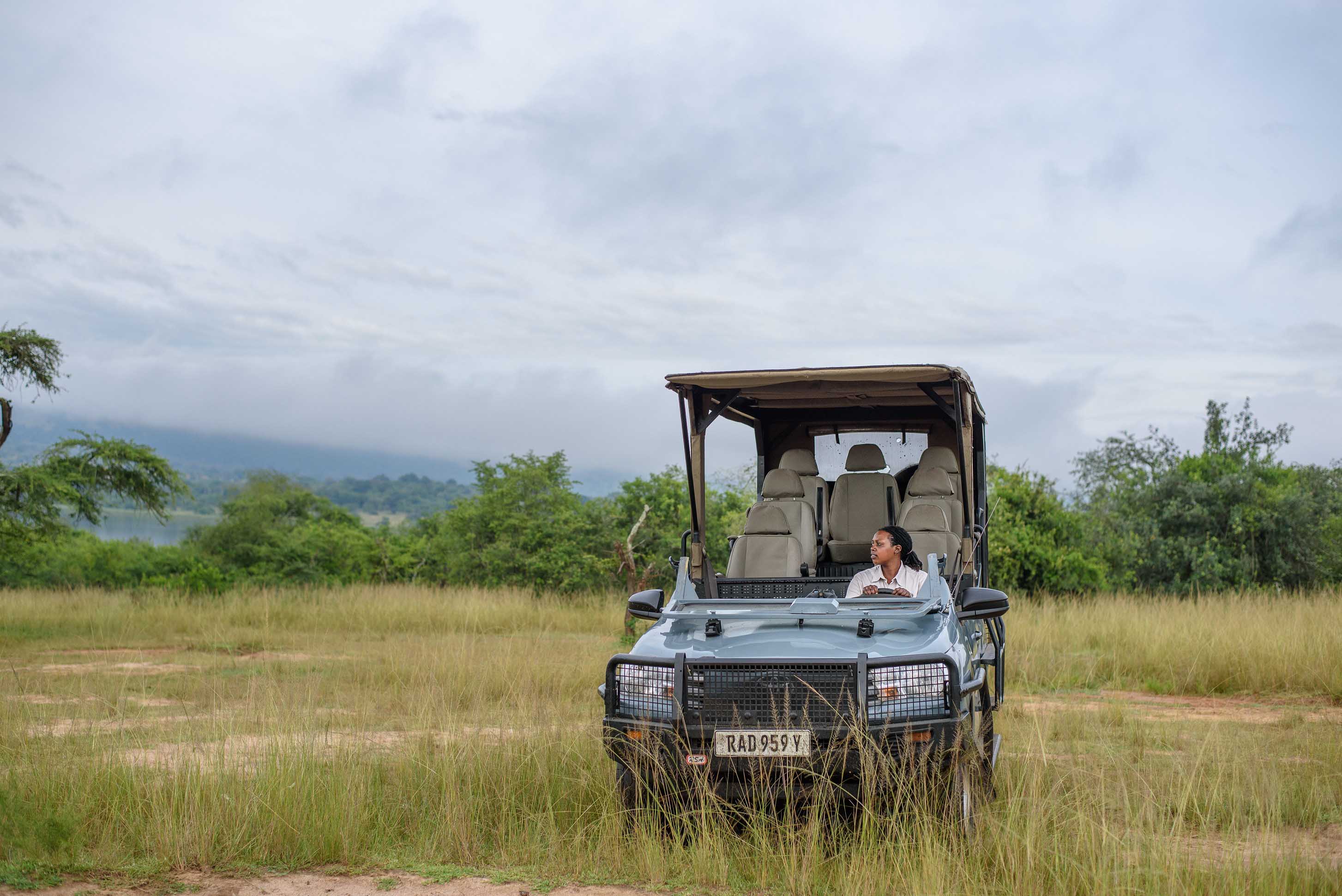
Ranger training and support
In all the conservation projects Wilderness supports, efforts are made to reduce human-wildlife conflict, conduct research, and manage populations of threatened species like desert-adapted elephants, black rhinos, giraffes, lions, leopards, and hyenas. These efforts fall largely into the hands of our rangers. By supporting partners like the Desert Lion Conservation Trust and Save the Rhino Trust Namibia (SRT), financial aid goes to employing local rangers skilled in traditional tracking, ranger training, and supporting the operational costs and expansion of these ranger programmes.

Save the Rhino Trust rangers, Namibia
In 1982, SRT was established to combat poaching and save the dwindling rhino population from extinction. Rather than relying on costly security measures, they offered community members secure livelihoods as wildlife guards, training them to monitor and protect this precious species.
Wilderness Desert Rhino Camp’s role is part of a partnership with SRT and neighbouring conservancies, supporting both rhino conservation and local communities. This region is home to the last truly wild black rhino population in Namibia, the largest outside national parks, all protected by the community.
Through our support of SRT, we are moving away from conventional military-style rhino protection tactics. Instead, we have embraced a simpler yet highly effective approach that leverages the expertise of respected local people. Utilising their traditional on-foot tracking techniques and deep knowledge of the landscape, these individuals monitor and protect rhinos, cultivating a newfound, “locally-grown” pro-rhino attitude.
“I grew up in the Kunene region, in northwest Namibia. I’ve been employed as a rhino ranger for the Torra Conservancy since August 2015. I know the ear notches and horn shapes of all the rhinos in this region”, says SRT ranger Joel Julius Somseb.
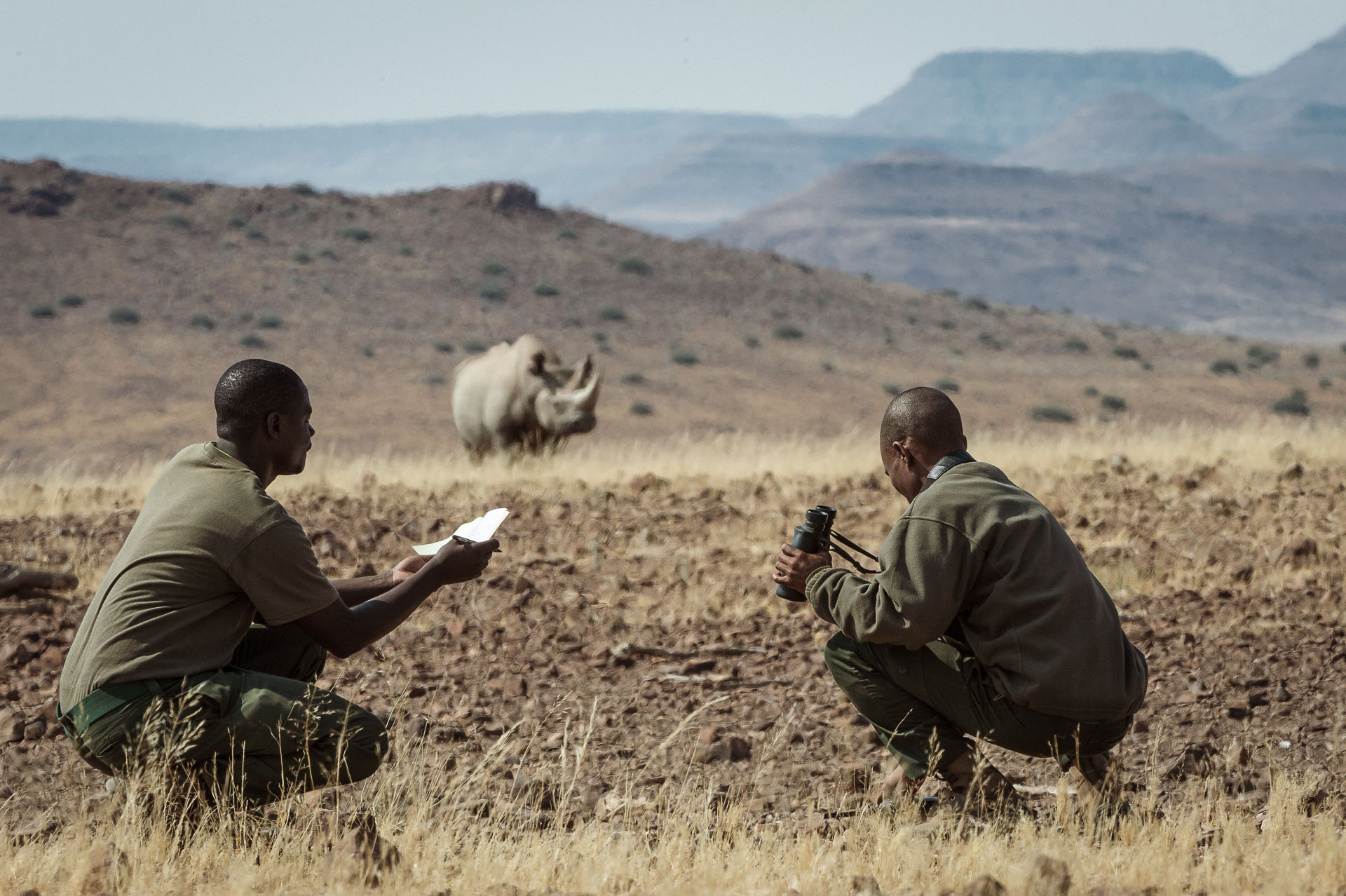
“I’ve been out in the field with guests when I’ve had to put myself between them and a rhino. I told the back-up guide to walk slowly backwards with the guests while I directed the rhino in another direction, and was able to run behind a milk-bush when it charged. We also sometimes encounter lions while out tracking rhinos on foot, collecting data for monthly reports”.
Despite the dangers, Joel and his fellow rangers remain dedicated to their work.
“Rhinos are not just animals to me; they are my life”, says SRT ranger Michael Adams.
“Six years ago, I made the decision to join the Rhino Rangers group with a profound purpose: to safeguard the world’s last free-roaming black rhinos, ensuring their perpetual existence. I remain dedicated to this cause, pouring my utmost effort into the protection programme”, says Michael.
Lion rangers, Namibia
Alongside the rhino rangers of Namibia, we celebrate the dedicated efforts of the Lion Rangers Programme in north-west Namibia. Specially trained and equipped game guards employed by conservancies to address human-lion conflicts, lion rangers play a crucial role in mitigating human-wildlife conflict.
The Lion Ranger programme aims to sustainably manage human-lion conflict to ensure the survival of desert-adapted lions while benefiting local communities. The primary threat to these lions is retaliation after conflicts with humans, which the programme seeks to mitigate through sustainable wildlife conservation. According to the Lion Rangers, this must be community-driven, transparent, and adaptable to various challenges. The programme promotes coexistence between lions and rural residents by helping communities to benefit from living with lions.
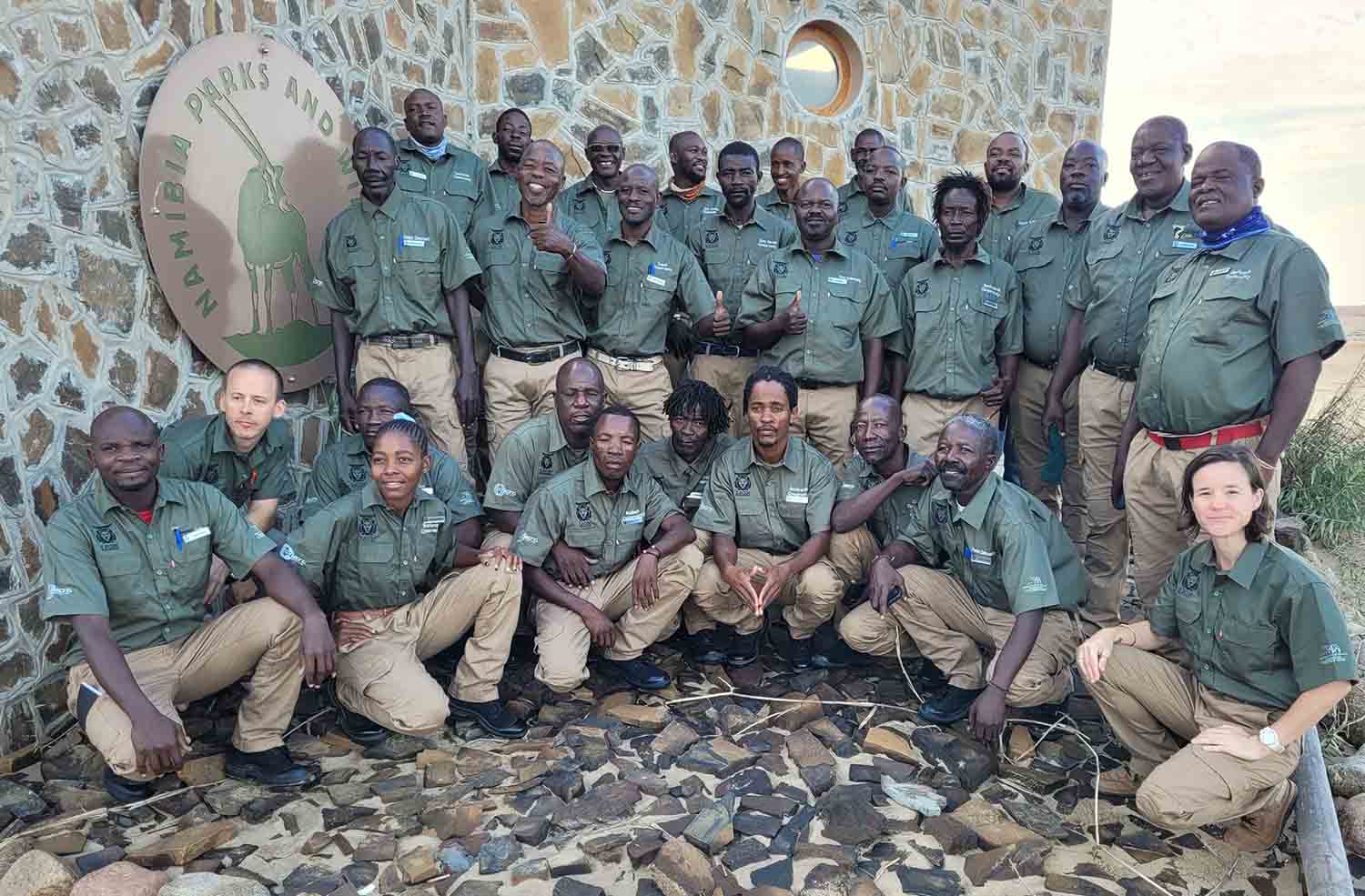
Supported by the Wilderness Trust, these lion rangers recently completed their annual training at Möwe Bay in Skeleton Coast National Park. The training, held in March, emphasised the use of SMART (Spatial Monitoring and Reporting Tool) to monitor wildlife activity and reduce human-lion conflict.
The SMART tool is a cloud-based platform designed for conservation purposes, enabling the collection, visualisation, storage, analysis, and reporting of wildlife data. In Namibia's communal areas, the Lion Rangers are at the forefront of utilising SMART to enhance wildlife protection and establish transparent conservation impact measures. By using mobile phones equipped with SMART, the Lion Rangers can record patrols and incidents in the field, providing real-time data to wildlife managers. This system ensures scientific monitoring and reporting of ranger activities and lion movements in communal areas.
Primate rangers, Rwanda
In Rwanda, rangers not only protect the precious primates that attract thousands of visitors each year, but spend time getting to know each individual gorilla and chimpanzee. They spend long days on their feet; hours trekking through the jungle looking for families of gorillas, chimpanzees and golden monkeys. Having eyes on these primates not only keeps them safe, but provides information that is key to conserving them.
When out trekking with guests from Wilderness Bisate and Sabyinyo in Volcanoes National Park, gorilla trackers and rangers become interpreters; keeping both gorillas and guests safe by reading the body language and vocalisations of the gorillas. It’s a skill that can only be learned after hundreds of hours spent tracking and watching gorillas.
Part of the duties of Rwanda’s chimpanzee rangers in Gishwati Forest is taking meticulous records; noting each ape’s characteristics and behaviour, how they react to human presence, their breeding habits and what they forage on.
Without the hundreds of hours these rangers spend with these primates, guests would simply not be able to spend that one remarkable hour of time with some of our closest relatives.
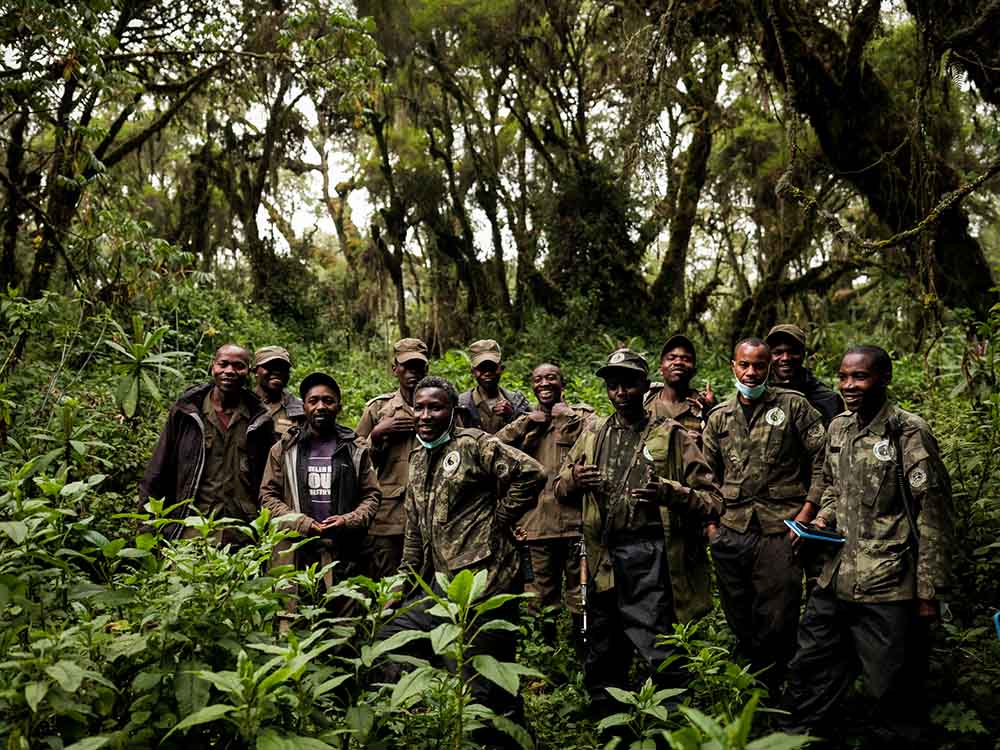
Scorpion Anti-Poaching Unit, Zimbabwe
Wilderness Zambezi provides ongoing support to the Scorpion Anti-Poaching Unit (SAPU) in Hwange National Park, ensuring its year-round operations. Since 2012, Wilderness has provided logistical support under the Zimbabwe Parks and Wildlife Management Authority (ZimParks).
In 2022, the unit expanded its patrol range significantly, covering over 2,000 km, removing snares, and apprehending poachers. Their efforts are critical in combating poaching and preserving the park's biodiversity. Data from patrols, logged with the help of ZimParks and Panthera, aids in detecting poaching trends. The increase in patrols has positively impacted Hwange’s wildlife hugely, highlighting the ongoing need for robust conservation efforts.
Wilderness continues to provide essential resources as part of our mission to safeguard Hwange’s natural heritage.
Encouraging a new generation of rangers
In 2023, the Children in the Wilderness Zambezi (CITW) team celebrated the success of their annual camp at the Painted Dog Conservation Centre’s (PDC) Inganyana Children’s Bush Camp near Hwange National Park. This four-day adventure brought together 40 enthusiastic students and four Eco-Mentors from CITW Lupane Eco-Clubs, all eager to immerse themselves in nature and wildlife. The camp's primary goal was to inspire these young minds to become future stewards of the environment and foster positive attitudes towards wildlife. A game drive, a first-time experience for many, allowed students to appreciate the beauty of their local national park and understand each species' role in the ecosystem, while a visit to a local wildlife rehabilitation facility highlighted the importance of conservation efforts for endangered animals.
Hands-on and engaging, the success of this camp was truly remarkable, marked by the many children who expressed their aspirations to become game rangers in the future and work closely with national parks.
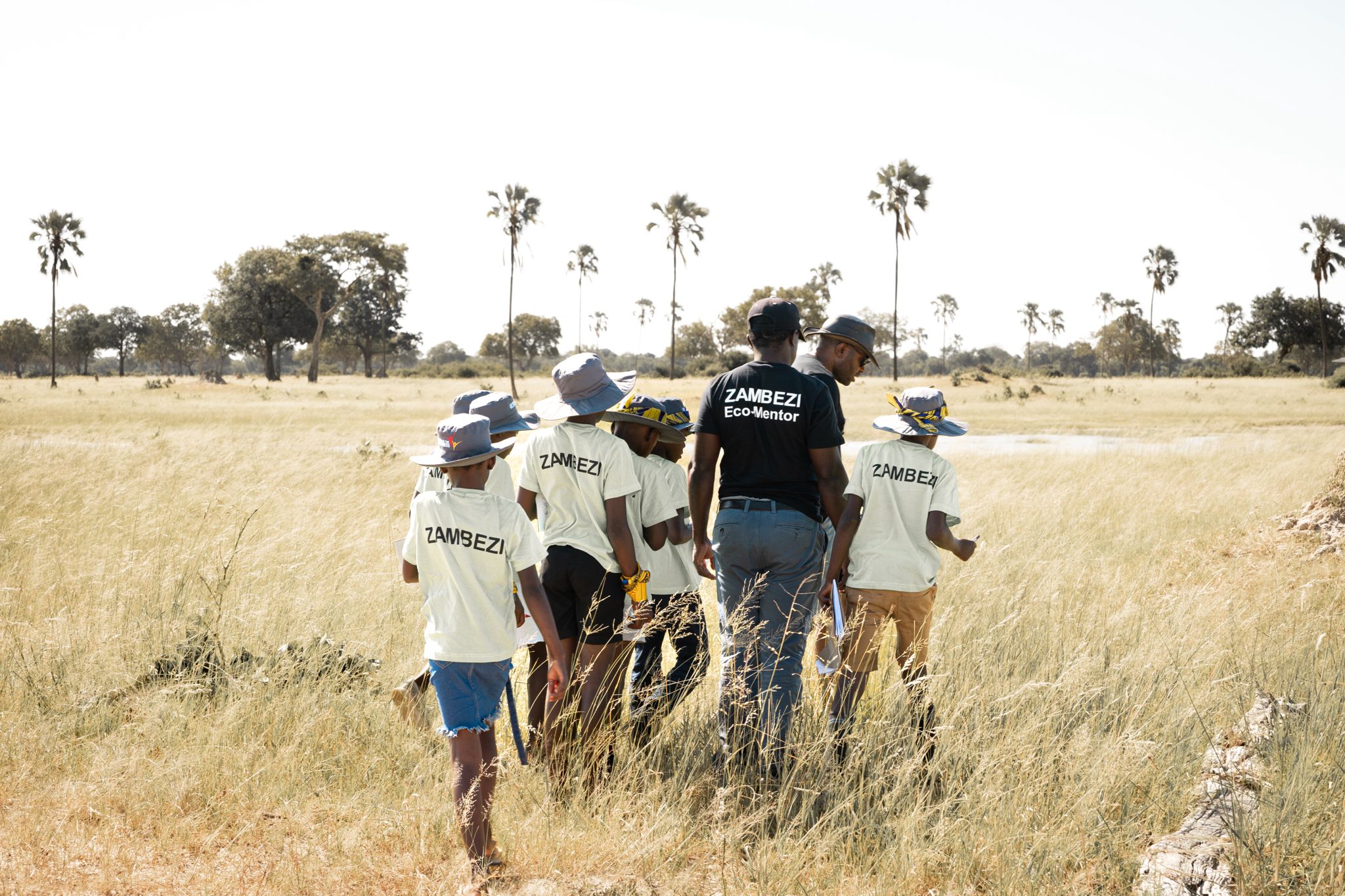
As we celebrate World Ranger Day in 2024, we take a moment too, to celebrate our expert guides at every one of our camps. Without their knowledge, hard work and dedication to conservation, our safaris would not be the exceptional, memorable experiences they are.


Let’s plan your next journey
Ready?
When we say we’re there every step of the way, we mean it, literally. From planning the perfect circuit, to private inter-camp transfers on Wilderness Air, and easing you through Customs. We’re with you on the ground, at your side, 24-7, from start to finish. Ready to take the road less travelled? Contact our Travel Designers to plan an unforgettable journey.